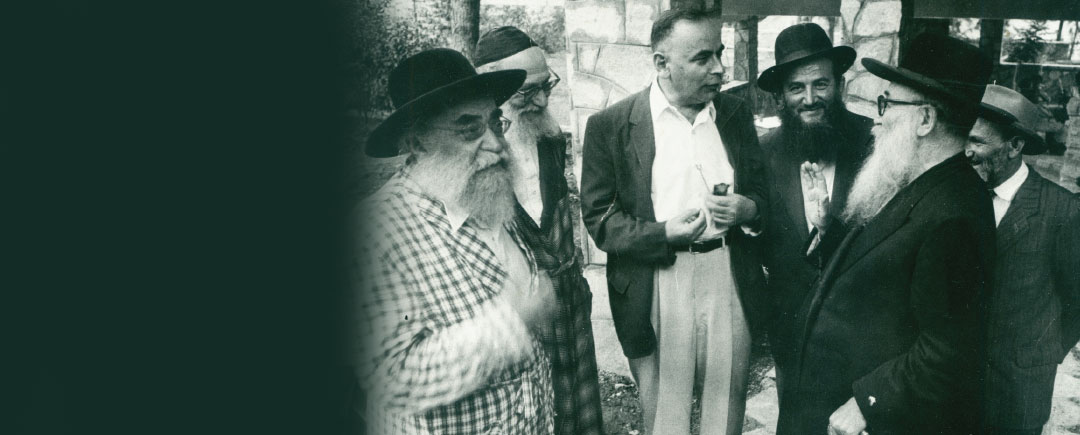Healer of a Broken People


Rav Zalman's bein hazmanim in Jerusalem's Reich Hotel together with Rav Tzvi Kagan Lomza Rosh Yeshiva Rav Yechiel Mordechai Gordon and his mechutan Petach Tikvah Cheif Rabbi Reuven Katz
The yeshivah had burned down.
The fire that tore through the town of Telshe Lithuania in 1908 caught onto the yeshivah building and burned down the entire beis medrash.
Rosh Yeshivah Rav Eliezer Gordon — known as Reb Leizer Telsher — was shattered as his young son-in-law Rav Zalman Sorotzkin walked among the ruins. The students of the yeshivah knew and respected Rav Zalman — son of Rav Ben Zion Sorotzkin of Zachrina Lithuania — because until his marriage three years prior he had been one of them toiling in learning together with them after coming from the yeshivos of Volozhin and Slabodka. Now while everyone else was reeling from shock and anguish he headed toward the brick factory on the outskirts of the city.
All commerce had been halted in the soot-and-ash covered city but that didn’t stop Rav Zalman from presenting a tempting offer to the factory owners. He would give them cash — which he had taken against future stipend money — in exchange for a large quantity of bricks at a rock-bottom price.
The owners of the factory jumped at the deal. By the time the residents of the city recovered from the blow and began rebuilding their destroyed homes the price of bricks had skyrocketed. But one place in town was already deep into rebuilding at a cost they could handle — thanks to the foresight of the Rosh Yeshivah’s son-in-law.
Taking action while others were immobilized by grief or trauma became Rav Zalman’s trademark for the next 60 years. This was the maiden campaign of the man who would emerge as one of the Torah world’s primary navigators during the period of survival between the two world wars and later in Eretz Yisrael. In Europe his diplomatic prowess and selfless dedication saved hundreds of rabbanim and talmidei chachamim from the Russian and Polish drafts helped thousands of refugees avoid starvation prevented anti-Jewish decrees from causing catastrophic damage and bolstered Torah education in the face of strong secular influences. And after the Holocaust as the Torah world struggled to rebuild itself he reestablished the Vaad Hayeshivos which he’d originally organized in Vilna served as chairman of the Moetzes Gedolei HaTorah and became head of the Chinuch Atzmai system for chareidi education in Eretz Yisrael.
Rav Zalman Sorotzkin (also known as the Lutzker Rav after the town of his last rabbinic position) passed away 50 years ago this week on 9 Tammuz 1966 and there are still many who remember and were touched by his foresight and tireless dedication. For others though a perusal of the family’s archives — including a collection of yellowed documents and a riveting personal memoir — is a veritable treasure trove whose legacy is as relevant as ever.
Oops! We could not locate your form.













